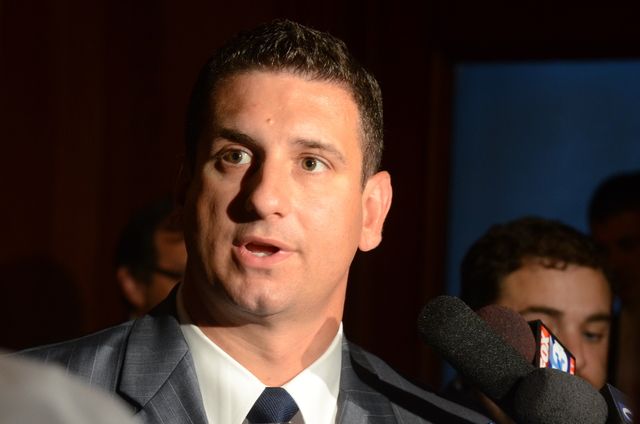Click here to subscribe today or Login.
HARRISBURG — The Pennsylvania Legislature’s deep divide over tax increases dashed hopes in the Capitol on Friday for a quick end to state budget negotiations, and leaders sent rank-and-file lawmakers home while they worked to find a solution with Democratic Gov. Tom Wolf.
The prospect of a new impasse arose barely two months after the end of a record-breaking stalemate in the first budget go-around between Wolf and the Republican-controlled Legislature.
The House and Senate finalized a $31.5 billion spending plan Thursday and sent most of it to Wolf’s desk. But that momentum petered out Friday, the first day of Pennsylvania’s 2016-17 fiscal year.
Budget negotiators vowed to work over the weekend to seek agreement on more than $1 billion needed to balance Pennsylvania’s deficit-plagued finances. But Democrats and Republicans feuded over the precise amount of money necessary to balance the budget.
“Every once in a while you’ve got to make the difficult decisions to run the state, pay for schools, take care of your responsibilities,” said House Minority Leader Frank Dermody, D-Allegheny. “For the last four years, that hasn’t been done and now the chickens have come home to roost.”
Top lawmakers shuttled between meetings in the Capitol on Friday while Wolf stayed out of sight.
House Majority Leader Dave Reed, R-Indiana, continued to back a $1.2 billion revenue proposal built on higher tobacco taxes, back taxes from tax delinquents, the expansion of legalized gambling and the expectation of brisker wine and liquor sales.
“We have a revenue package,” Reed said. “We’ve been talking about a revenue package for a couple weeks now. It’s always been around $1.2 billion. We’ve shared that with the Senate, we’ve shared that with the Democratic caucus, we’ve shared that with the administration. … We’ve put $1.2 billion in new revenue on the table. If the governor wants to walk way from $1.2 billion in new revenue, that’s his choice.”
Democrats, however, say it will take closer to $1.4 billion to close the gap with the spending plan, and accused Republicans of overly optimistic projections.
The House on Tuesday passed a bill that would make Pennsylvania the fourth state to legalize internet gambling, but that plan hit opposition in the Senate. Democrats have raised the possibility of reviving a gross receipts tax on natural gas that is currently used by nearly 3 million households and businesses.
Leaders of both chambers told rank-and-file members they could be called back to Harrisburg on a few hours’ notice if negotiations produce an agreement.
Spending bills authorizing hundreds of millions of dollars for state-subsidized universities and college tuition grants remained in the House. Meanwhile, legislative staffers prepared hundreds of pages of budget-related companion bills, including charter school legislation that was opposed by the Philadelphia School District.
Should efforts on a tax deal collapse, Wolf would have 10 days to decide what to do with the budget bill — until the end of July 11 — before it becomes law without his signature. Wolf has said that he would not sign the bill without sustainable revenues.
“The governor is hopeful we can work through the weekend to finalize this budget that moves the commonwealth forward, and ensure that we have the revenue necessary to pay for it,” Wolf’s office said in a statement Friday.
Republicans have all but killed any consideration of increasing taxes on income, sales or Marcellus Shale natural gas production.
The gross receipts tax on natural gas is now a key element of a revenue package being advanced by Democrats. It was a 5 percent tax — or an estimated $55 per household — when it was eliminated in 2000. But House Republicans have balked.
“You can talk about a pipe dream maybe for the governor or for the Senate or for the Democratic caucus,” Reed said. “But if you don’t have the votes, you don’t have the votes, and I know for a fact we don’t have the votes in the House for a tax on people’s utilities.”
Neither the Senate nor the governor released any details of a competing package of revenue that they would support. House Republicans have not unveiled the details of how they would increase taxes on cigarettes and other tobacco products.





